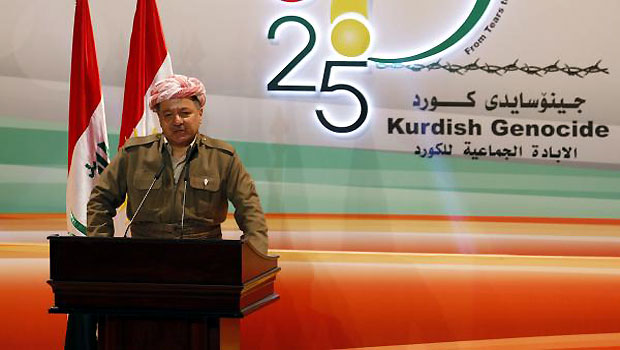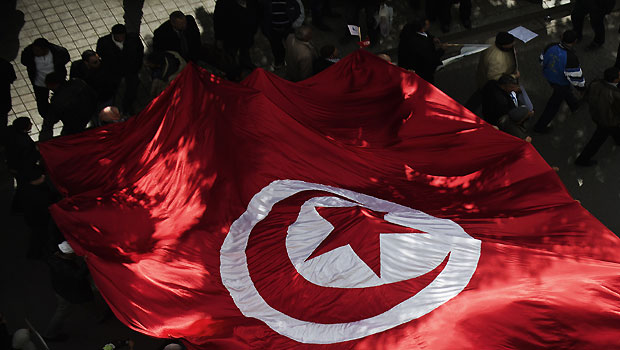
Caption:
Tunisian supporters of ruling Islamist party Ennahda carry a large version of their national flag as they march through Tunis’s Habib Bourguiba Avenue during a demonstration to protest their movement’s legitimacy and denounce plans for a government of technocrats aimed at resolving a major crisis on February 16, 2013. (AFP PHOTO/GIANLUIGI GUERCIA)

Caption:
Tunisians chant slogans and hold pictures of assassinated leftist politician Chokri Belaid during a demonstration against the Islamist Ennahda movement in Tunis February 23, 2013. (REUTERS/Zoubeir Souissi)
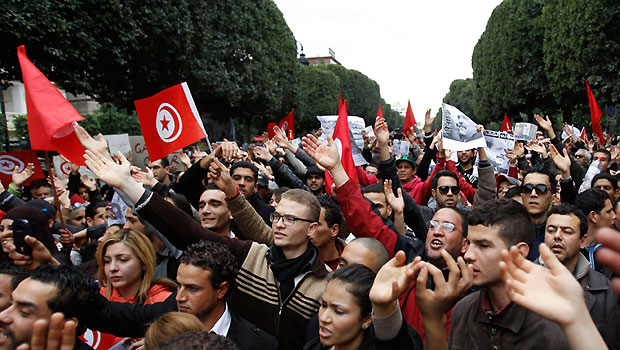
Opinion: Ennahda will not survive the next elections
Today, the leaders of the Ennahda Movement in Tunisia are rushing to dominate the forthcoming elections, whether via legitimate or illegitimate means. In the first place, for Ennahda even reaching power was akin to a dream coming true or a lucky strike that will not...Caption:
Pro-democracy protesters perform the weekly Friday prayers at Taghyeer (Change) Square in Sana’a on April 19, 2013. (REUTERS/Mohammed al-Sayaghi)
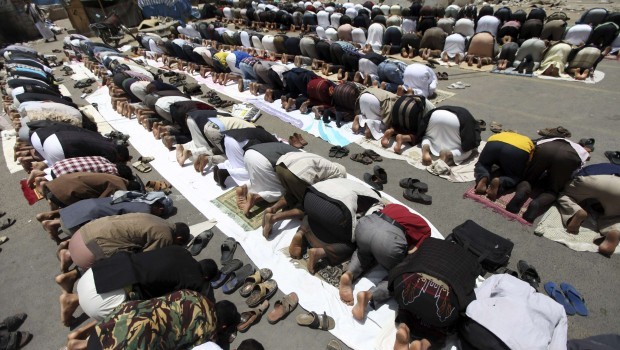
Islamic Movements in the Gulf are Engaging with the Arab Spring
It is undeniable that Islamic movements in the Gulf are engaging with the Arab Spring as part of their wider project. The “Islamic Awakening” that began in the 1980s was a kind of “rebirth” of religious sentiment among certain segments of the population;...Caption:
Pro-democracy protesters perform the weekly Friday prayers at Taghyeer (Change) Square in Sana’a on April 19, 2013. (REUTERS/Mohammed al-Sayaghi)

Islamic Movements in the Gulf are not Engaging with the Arab Spring
The Islamic movements in the Gulf are part of a broader return to Islam that began during the 1980s, after both nationalist and Marxist projects failed—sometimes termed an “awakening” of collective religious awareness. I do not presently see signals of a new or novel...Caption:
Iraqi Kurds wave the Kurdish flags next to a bonfire to celebrate New Year which marks the beginning of the Noruz spring festival in the northern city of Erbil. (AFP)
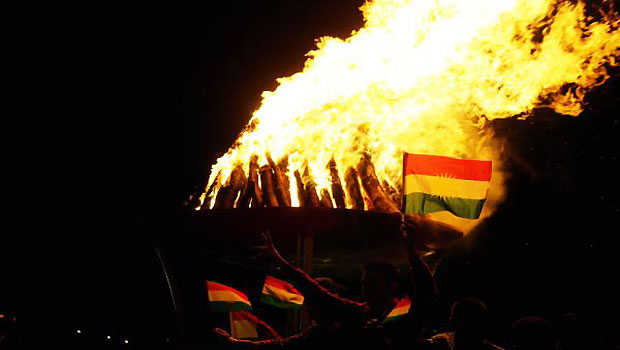
Now is Not the Time for an Independent Kurdistan
Kurdish-Arab tensions have increased in recent weeks as a result of political differences between the Kurdistan Regional Government (KRG) and the federal government in Baghdad. Disputes over oil and gas resources and the 2013 budget have undermined stability in Iraq...Caption:
Masoud Barzani, president of Iraq’s autonomous Kurdistan region, addresses the opening of a conference on “Recognizing Kurdish Genocide” in Erbil. (R)
